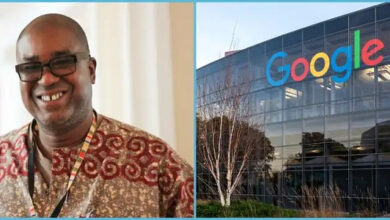The American Bar Association and other organizations encourage lawyers to do “pro bono work,” providing free legal services to low-income clients dealing with legal issues.
While the Sixth Amendment of the Constitution provides that everyone has a right to counsel, only criminal defendants – those facing the possibility of imprisonment – are entitled to free legal representation.
In civil cases, people can have an attorney represent them, but it’s up to them to pay for that lawyer. That’s true even in proceedings with life-altering impacts – such as child custody hearings, veterans’ benefits petitions or applications for a domestic violence-related restraining order.
What Is “Pro Bono Law”?
In the practice of law, pro bono (an abbreviation of “pro bono publico,” a Latin phrase meaning “for the public good”) refers to when lawyers provide free legal services for individuals and organizations, says Vida Johnson, associate professor at Georgetown Law, where she co-directs the school’s Criminal Justice Clinic.
Pro bono law describes attorneys working on civil rights and human rights issues as well as those who furnish free legal services to charitable, community, religious, educational and governmental organizations.
For individual clients, pro bono services run the gamut of legal work, from preparing wills to appeals of criminal convictions, Johnson says.
Even attorneys can be surprised by the scope of activities that legal services organizations provide their clients, according to Diego Cartagena, president and CEO of Bet Tzedek, a nonprofit law firm in Los Angeles.
At Bet Tzedek, attorneys tackle elder abuse, immigration filings for undocumented children, home foreclosures, loss of medical insurance, LGBTQ discrimination, small business owners’ concerns on taxes and intellectual property, and more.
Who Is Eligible for Pro Bono Services?
Many legal service organizations limit pro bono services to clients whose annual income is at or below 125% of the federal poverty level. In 2023, that is $18,225 for individuals and $37,500 for a household of four.
However, financial distress is not the only reason people qualify for pro bono services.
Some organizations provide legal assistance to particular types of clients, such as veterans or the elderly, while others focus on specific issues such as First Amendment cases involving journalists.
For those ineligible for free services but not able to afford lawyers’ market rates, there is a new category of nonprofit law service providers. Known as “low bono” firms, these organizations offer services on a sliding scale, Johnson explains.
Filling The ‘Justice Gap’ – Not Enough Legal Aid to Go Around
When it comes to civil representation, almost 54 million Americans qualify for “legal aid,” free legal services largely funded by grants from the federal government. However, there’s a coast-to-coast shortage of legal aid staff attorneys. For example, in both California and North Carolina, there’s one legal aid staff attorney for every 8,000 people eligible for their services.
According to a 2022 report from the Legal Services Corporation, Americans with low incomes do not receive any or enough legal help on 92% of their substantial legal issues.
Nonprofit legal service providers do their best to make up for the shortfall.
Everyone is “working nonstop, and the need is overwhelming,” Cartagena says.
Bet Tzedek only helps those who live in Los Angeles County, and there are 10 to 15 other providers in the area. Still, in 2022, more than 85,000 individuals turned to Bet Tzedek for some degree of information or assistance, Cartagena says.
The Volunteer Lawyers Doing Pro Bono Work
Legal service organizations recruit and train volunteer lawyers to handle their caseloads. Attorneys choose to volunteer on their own, while law firms have programs for their attorneys to work on pro bono matters. Attorneys at the nation’s 200 largest law firms contribute an estimated 5 million pro bono hours each year, according to the Association of Pro Bono Counsel.
While many attorneys’ pro bono work may be the same as their full-time practices, for attorneys helping pro bono clients in other areas of law, it is the organizations’ best practices to provide them with training and support, Cartagena says.
Law schools are another key source of pro bono work. Clinic programs, such as Johnson’s at Georgetown, allow law students to represent clients under the supervision of licensed attorneys.
Pro Bono Law Is Often as Good as Paid Representation
While people sometimes expect pro bono lawyers to be less capable or committed to their clients, that’s not true, Johnson says.
Legal service staff attorneys deliver results that are just as good as for-fee attorneys, and they tend to be the most passionate and committed lawyers, Johnson says. In many cases they have chosen their careers because they care about clients and justice more than they care about money, Johnson explains.
Ethically, once an attorney accepts a client on a pro bono matter, there should be no difference between the content and quality of work the pro bono and paying clients receive.
A pro bono client has the same right to ask for anything the paying client would ask for. “No matter what, the pro bono attorney works for you,” Johnson says.
Johnson often advises her clinic students to ask themselves if they would do something if the client was paying $500 an hour. If the answer is yes, they should do it for their pro bono client, too.
The Broader Impact of Pro Bono Work
Pro bono law makes a tremendous difference for every individual client because their cases go to the “core of an individual’s rights, and they go to the most basic aspects of their lives,” Cartagena explains.
Sometimes helping one person keep a roof over their head can impact an entire community.
Bet Tzedek has been representing elderly clients who have fallen victim to unscrupulous contractors. These contractors promise seniors free installation of solar panels. Then, after they tear a hole in the roof, they leave, demanding $80,000 to repair the damage. When Bet Tzedek goes after these contractors, it pursues remedies in court and notifies relevant government agencies. Their goal is to make the scam’s cost so high that contractors won’t try it again, Cartagena says.
Given the stakes of pro bono matters, landmark legal opinions often turn out to have come from a pro bono case, Johnson explains. Even as there are not enough resources to go around, individual cases lead to systematic change. A single case can improve the public good.




